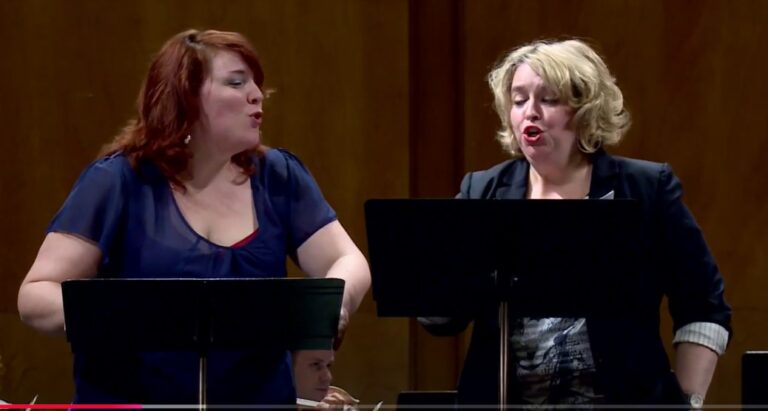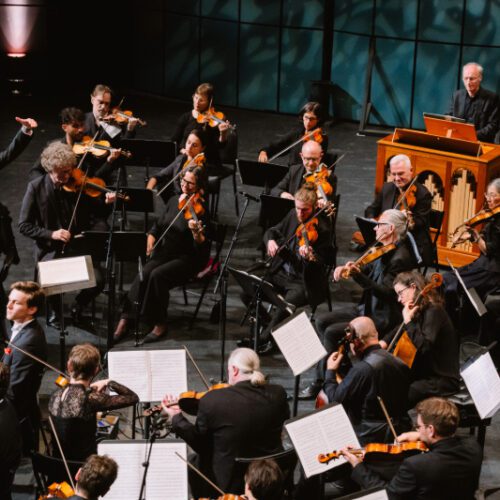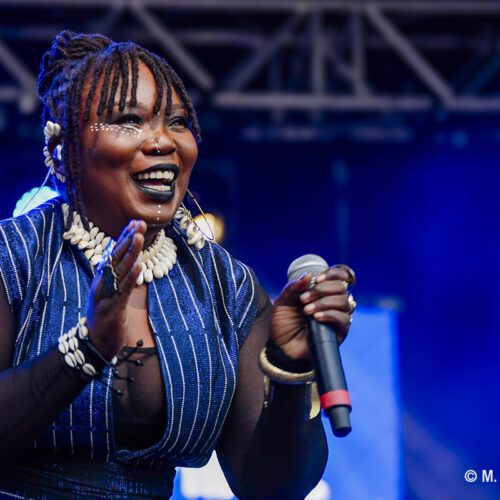Les Violons du Roy welcomed soprano Karina Gauvin and contralto Marie-Nicole Lemieux for the second of nine evenings to celebrate their fortieth anniversary. This Wednesday, October 23, at Palais Montcalm, we were treated to an evening devoted to Handel’s oratorios, with a rich program featuring excerpts from six of them: Joshua, Theodora, Solomon, among others.
The concert opens with an elegant French-style overture to Judas Maccabaeus, heralding the first duet for our From this dread scene singers. We are immediately struck by the contrasting stage personalities of the two singers. While the contralto is very theatrical, one might almost say exuberant, giving a very playful aspect to her performance, the soprano is more discreet and sometimes loses our attention by looking too hard at her score, despite her obvious vocal qualities.
The concert continues with the Sinfonia from the piece Alexander Balus, featuring the wind section (two oboes and bassoon). The wind section’s melodic knitting is very well executed, as is Les Violons du Roy’s overall work. Indeed, throughout the concert, despite being a chamber music ensemble, the group reveals a multitude of different colors, thanks to conductor Jonathan Cohen’s meticulous attention to nuance, slowing down and ornamentation in Baroque music. All the codes are respected, with a charming taste for subtlety: we are not faced with the spectacular, which might displease some, but with meticulousness and attention to detail.
A few songs later, we are treated to the duet Welcome as the Dawn of Day from the oratorio Solomon, sumptuously interpreted by the two soloists, a demonstrative declaration of love between Solomon and his wife. Marie-Nicole Lemieux’s emotional force transports us, and it’s refreshing to hear this love duet sung by two women. One might wonder, however, about the choice of program order, which places this declaration of love in the second part of the oratorio after an aria in the third part.
The final highlights of the concert were the excerpts from Theodora, starting with theOuverture by the chamber orchestra, which is highly impactful and offers us a range of forte tones hitherto little exploited; then with the duet To thee, thou glorious son of worth, which at last allows us to discover the most beautiful aspects of Karina Gauvin’s voice – beautiful, pure high notes, initially devoid of vibrato, which then burst into flames to our delight. While the solo pieces by the singers are very well executed, it’s really the chemistry in the duets that gives this concert its richness.
























